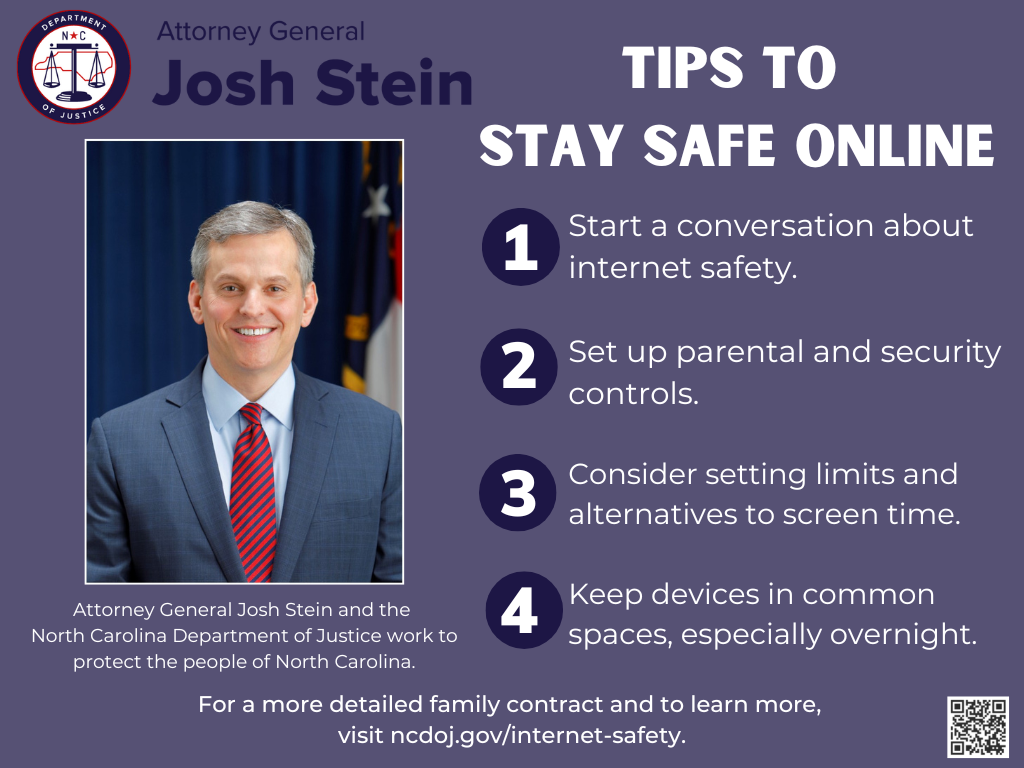
Attorney General Josh Stein
August 2022
As our children go back to school, there’s nothing more important than keeping them safe whether in person or online. Technology and internet access offer new avenues for students to learn and engage in the classroom, but our increasingly online environment poses risks for children’s mental health and safety. The internet exposes kids to dangers like bullying, identity theft, scams, or exploitation. Before school starts, make sure to have conversations with your kids about how to stay safe online.
Start a conversation about internet safety. It’s critical that children know the dangers of sharing financial or personal information, clicking on untrustworthy links, or communicating online with people they don’t know. Ask your child to tell you when things happen online that make them feel nervous or uncomfortable. Make sure they understand that they won’t be punished if they share these experiences with you. If children know the risks and can communicate them with an adult, they can steer clear of trouble online or get help when they need it.
Set up parental and security controls. Your Internet Service Provider (ISP) probably has free parental control tools. Download or activate them to help control what your child has access to on the internet. Parents may also want to download additional apps to help control their kids’ interactions online. Age-appropriate search engines can ensure kids don’t accidentally encounter inappropriate content on the internet. When seeking additional parental control software, look for recommendations from independent reviewers.
Consider setting limits and alternatives to screen time. While the American Academy of Pediatrics recommended children spend no more than one or two hours on screen per day, surveys show that kids between age 8 and 12 spend an average of more than five hours on screens each day. Too much screen time can affect kids’ mental and physical health. Consider using apps to track and limit your child’s screen time.
Keep devices in common spaces, especially overnight. When children feel anonymous, they’re more likely to take risks. Keeping devices in a common area or with you overnight ensures that you can monitor the amount of time spent on the device and monitor its use. Check in on the content your children access to ensure it’s safe and age appropriate.
While the internet and technology offer opportunities for kids to learn and be entertained, it is critical to keep them safe. Being proactive and talking about internet safety can help reduce the risks of engaging online. By following these tips, you can help your kids enjoy a safe and happy new school year. For more information about keeping kids safe online, visit my office’s website at ncdoj.gov/internetsafety/kids.
